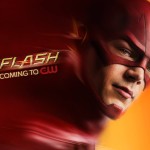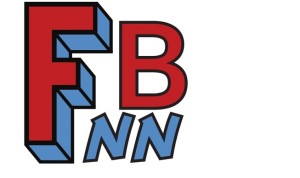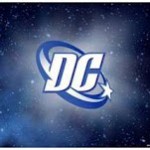 In a season full of comic based TV shows, The Flash has managed to stand out from the crowd. It started building buzz a year before its debut when it was announced that Barry Allen would appear on last year’s fall finale for Arrow. What transpired was one of the best depictions of The Flash’s origin ever, setting the stage for the series.
In a season full of comic based TV shows, The Flash has managed to stand out from the crowd. It started building buzz a year before its debut when it was announced that Barry Allen would appear on last year’s fall finale for Arrow. What transpired was one of the best depictions of The Flash’s origin ever, setting the stage for the series.
Originally, The Flash was supposed to get a back door pilot in that later half of that season, but the executives at CW were so impressed by what they had seen so far that they opted to order a full pilot for the show instead. When The Flash premiered, it was the highest rated debut the CW had seen in five years. It has been a strong ratings performer for the network since then, easily gaining a full season order after only two episodes.
I’m going to make a bold statement, The Flash is easily the best comic book adaptation that has ever appeared on TV.
So why is that?
One of the biggest complaints about most adaptations of DC properties is that they seem to be ashamed that they are based on comic books and do everything to say “no, really, we are mature.” Often doing this by going grim and gritty, even if the character in question was nothing like this in the comics.
The Flash doesn’t bother with that. It proudly embraces its comic book roots and presents a hero who is upbeat and optimistic. Even more than the nineties version, this show explores the nature of the Flash’s powers and what he can do with them. The visuals also capture the feel of the comics, complete with the speed force lightning effect that surrounds Barry when he uses his powers.
It’s also a great point that, so far, all the villains have been characters from the comics. Even when the characters have obvious alterations from their comic roots, they are still all great nods to the original versions.
Of course for the show to work, we have to connect to the characters.
As Barry Allen, Grant Gustin naturally has the whole show riding on his shoulders. Fortunately, it is a case of perfect casting. The show takes advantage of his boyish looks to help convey the enthusiasm that Barry has for his powers, while simultaneously highlighting his compassion. As with any modern adaptation of the character, this Flash is a mixture of both Barry Allen and Wally West. Where the nineties version was mostly Barry with some Wally mixed in, Gustin’s is more of a 50/50 mix.
The supporting cast is also strong, with some interesting references to the comics
Dr. Harrison Wells (Tom Cavanagh), the Head of S.T.A.R. Labs, is responsible for the Particle Accelerator explosion that gave Barry, and all the villains, their powers. While clearly working to both protect Barry and help him improve his powers, there is clearly much more going on; we are shown that he is faking the need for a wheelchair and is willing to kill in order to protect Barry. On the surface, Wells appears to be an original character, but based on recent events I won’t spoil here, this is likely an alias so we will have to wait and see.
Cisco Ramon (Carlos Valdes) is an engineer working for Wells, who is possibly more enthusiastic than Barry about their crime fighting. He has a habit of giving the villains nicknames, thus bringing their comic book names into the show. He is based on the DC hero Vibe, which begs the question, is he going to get powers down the road?
A similar question hangs over Dr. Catlin Snow (Danielle Panabaker) who in the comics is the super villain Killer Frost. Here she is part of Wells team and acts as medic when Barry is injured. She is far more serious than Barry or Cisco, but clearly cares about them. While there has been nothing overt, there are hints that she might be attracted to Barry, which could end up setting up a classic CW love triangle and another case of Chloe syndrome.
And this leads us to Iris West (Candice Patton), the girl Barry carries a torch for. The weakest part of the show is how convoluted this relationship is. Barry had a crush on Iris as a child. When his mother is murdered and his father sent to jail for the crime Barry goes to live with Iris and her dad. As adults, Barry still has that crush on her but, due to the awkwardness of their situation, keeps this to himself. As adults Iris considers Barry to be her best friend, oblivious to his crush, and is dating her dad’s partner; but once the Flash appears on the scene, Iris becomes his number one fan and writes a blog about him. Of course in comic canon Barry marries Iris, so that makes her his destined love. Unfortunately this is the one thing in the show that just rings false.
Swept up in this is Eddie Thawne (Rick Cosnett), Iris’ boyfriend and her dad’s partner on the police force. Eddie is an honest to goodness nice guy who just has the misfortune of being Iris’ boyfriend, thus making him a default antagonist for Barry. Also, there is his name; in the comics Eobard Thawne, a man from the 25th century is the Flash’s nemesis, Professor Zoom, the Reverse Flash. Since the Reverse Flash is the big bad of the series fans are naturally assuming either Eddie becomes him, or is somehow connected to him. Time will tell.
Rounding out the main cast is Joe West (Jesse L. Martin), Iris’ father and Barry’s foster-father. Where Wells mentors Barry on the practicalities of his powers, Joe mentors him on his behavior as a hero. Honestly, I don’t think the show would be able to hold up the believability of Barry’s development without Joe and I’m glad they had him know about his foster son’s duel identity from the beginning.
Outside of the main cast special mention needs to go to John Wesley Shipp as Barry’s father Henry Allen. Shipp played Barry in the nineties Flash series, and having him as Barry’s father is a nice nod to that connection.
Right now The Flash is by far the CW’s most watched series and with strong episodes and engaging writing, and will hopefully show DC that not all superheroes need to be dark in order to be successful.
I give The Flash a grade of A+. Fans will be overjoyed at how their hero has been translated to screen and non-fans can enjoy the series just as easily.
And, of course, we will revisit the show at the end of the season to see if they are able to keep this success going.





